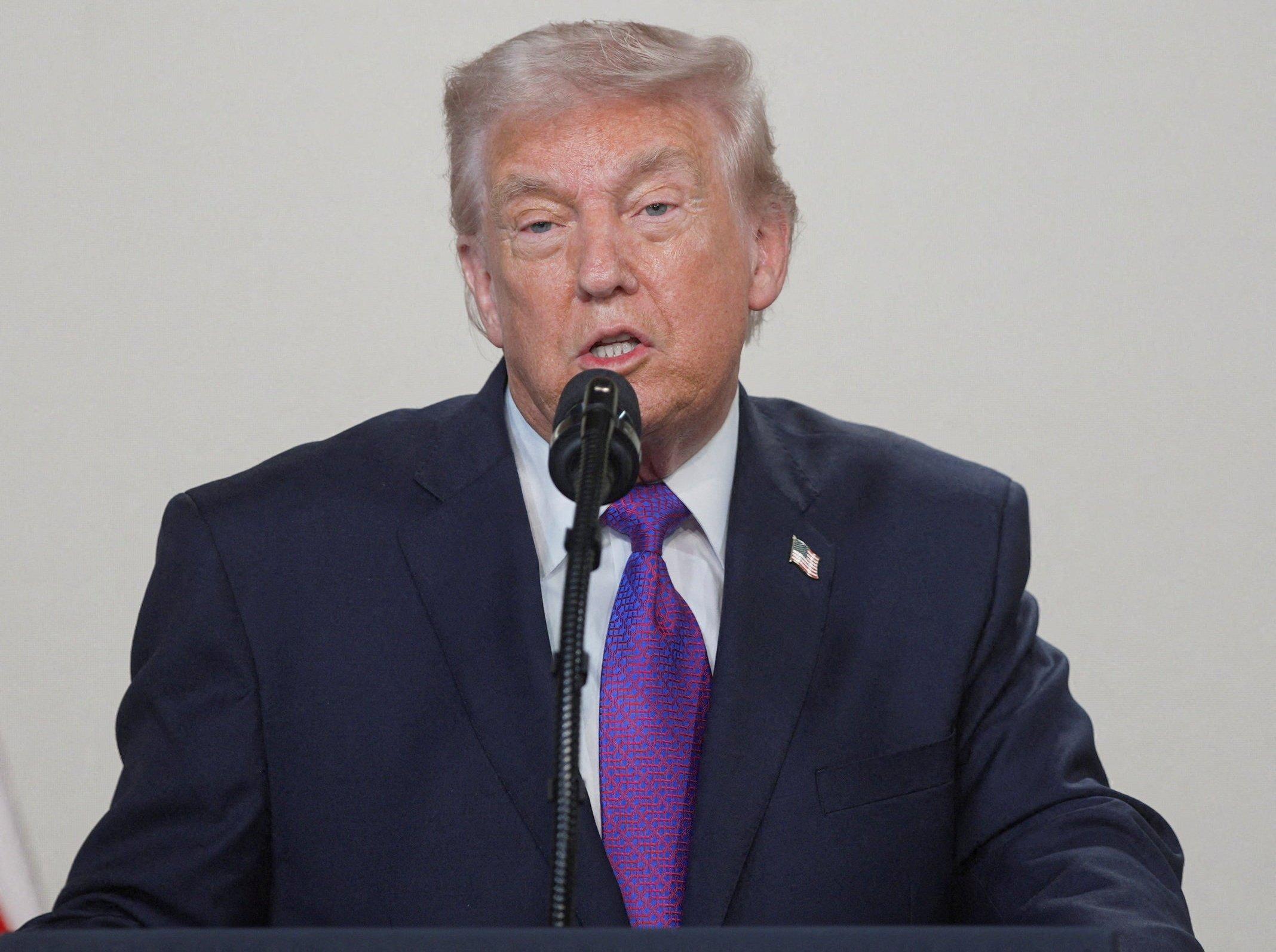Romania and Bulgaria scramble to protect Russian refineries as Trump sanctions loom
BRUSSELS — Romania and Bulgaria are racing against time to stop their critical oil refineries from shutdowns before U.S. sanctions on their Russian owners kick in later this month.
Washington’s decision to blacklist Lukoil and Rosneft has sent EU countries where Russia’s two largest oil companies are present into a tailspin, as they scramble to prevent fuel cutoffs before the sanctions take effect on Nov. 21.
On Friday, Bulgarian lawmakers approved a new bill that would allow the government to appoint a manager of the country’s mammoth Lukoil-owned Burgas refinery, granting them sweeping powers to take operational control of the facility, approve its sale and nationalize it if necessary. In the meantime, the country is sounding out asking for a sanctions exemption.
Romania — home to Lukoil’s Petrotel refinery — is yet to take a formal decision. But Bucharest is also considering asking for a “sanctions extension” as it drafts its own response, said a senior government official, granted anonymity to speak freely. Nationalization is seen as a “last option,” they added.
Still, Romanian Energy Minister Bogdan-Gruia Ivan told POLITICO that Bucharest was “prepared” operationally for any scenario. The government’s plan will aim to preserve “the economic activity of Romania, but at the same time to stop financing the Russian Federation,” he added.
The U.S. Treasury — which must approve any sale — and the European Commission declined to comment.
Efforts to secure new ownership for the refineries were thrown further into doubt after Swiss-based trading house Gunvor on Thursday retracted its bid to buy Lukoil’s international assets, following a blistering rebuke to the sales offer by the U.S. Treasury.
The new measures also impact other EU countries. Germany has won a six-month exemption for its Rosneft-owned Schwedt refinery, which has been under government control since 2022. Hungarian Prime Minister Viktor Orbán on Friday travelled to Washington in hopes of securing a waiver on Russian pipeline oil imports for his country and neighboring Slovakia.
The sanctions come as President Donald Trump grows increasingly frustrated with stalling efforts to secure a ceasefire in Ukraine. The EU, too, has in recent months stepped up its campaign to end the bloc’s remaining reliance on Moscow for energy.
Transition troubles
Technically, securing exemptions or appointing a state-backed manager to the refineries shouldn’t be an issue.
That said, the worst-case scenario — where the refineries cease operations — would play out very differently for the two countries.
For Bulgaria, where the Russian-owned refinery provides up to 80 percent of the country’s fuel needs, it would leave Sofia without supplies “by the end of the year,” said Martin Vladimirov, a senior analyst at the Center for the Study of Democracy think tank.

Romania’s facility, meanwhile, supplies around “20 percent” of the country’s fuel, said Ana Otilia Nuțu, an energy analyst at the Expert Forum think tank. A shutdown would therefore prompt “a few months” of mild price increases, she said, as the country races to find replacement imports.
Still, a shutdown could hit exports to neighboring Moldova, she added. And “if Moldova gets hit really bad, then it’s going to be another … huge PR opportunity for Russia,” Nuțu said.
The Moldovan government on Friday put forward its own proposal to buy Lukoil’s assets in the country, including an aircraft fuel depot, and said it had also asked Washington for a sanctions delay.
Mikhail Krutikhin, co-founder of the RusEnergy consultancy and a Russian energy industry expert, agreed the facilities should be able to “continue operations” safely as long as their future owner keeps the pre-existing staff and hires additional experts.
Difficult sales pitch
Instead, the real problems come further down the line.
Firstly, securing a buyer won’t be easy. Both refineries are “well run,” said one former Lukoil executive. But finding a firm willing to take on sanctions-related legal risks, expensive cargoes, high insurance premiums and constant investment upgrades will be “difficult,” they said.
While Vladimirov estimated the value of Bulgaria’s historically profit-making refinery at $1.5 billion, Romania’s Petrotel is less attractive, according to Nuțu. The facility, which had an annual turnover below €40 million in 2023, is debt-laden and “needs very large investments,” she said.
Lukoil didn’t immediately respond to a request for comment by POLITICO.
Meanwhile, future arbitration is also a challenge — especially amid a government takeover.
Bulgarian MPs passed an initial version of the refinery seizure bill in 30 seconds on Friday. That “haste and the complete lack of normal procedure [come] at the risk of making multiple serious mistakes,” said Ivaylo Mirchev, an MP for the opposition Democratic Bulgaria.
“Now they intend to grant this person such extraordinary powers that, in the end, ‘Lukoil’ will sue Bulgaria — and the money will end up in Russia,” he said.
The Bulgarian energy ministry declined to comment.
Instead, Nuțu said the decision to sell the refineries must be coordinated “at the EU level,” to prevent risks of Lukoil circumventing the U.S. sanctions.
Žygimantas Vaičiūnas, Lithuania’s energy minister, agreed. Whatever happens, he said, Brussels should probe potential buyers before the transaction takes place, given the lurking Russian presence.
“The European Commission has monitoring rights,” he told POLITICO. “In this case, all the possibilities should be examined.”
Seb Starcevic contributed to this report.



















:quality(85):upscale()/2023/09/18/918/n/1922398/a1136b676508baddc752f5.20098216_.jpg)
:quality(85):upscale()/2025/10/09/670/n/1922283/00b944c868e7cf4f7b79b3.95741067_.jpg)
:quality(85):upscale()/2025/10/15/765/n/1922398/29c37a6e68efd84bb02f35.49541188_.jpg)
:quality(85):upscale()/2025/09/09/891/n/1922283/7222624268c08ccba1c9a3.01436482_.png)
















